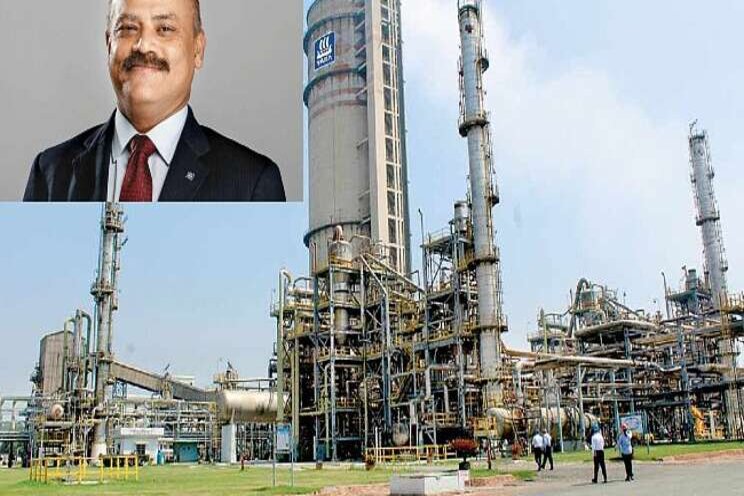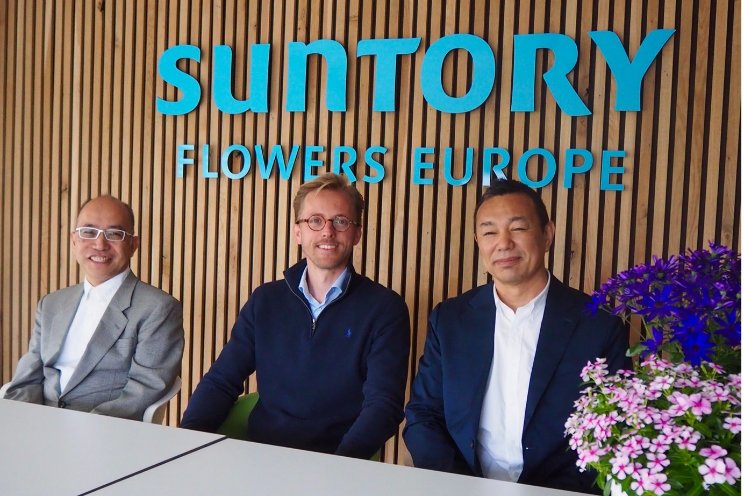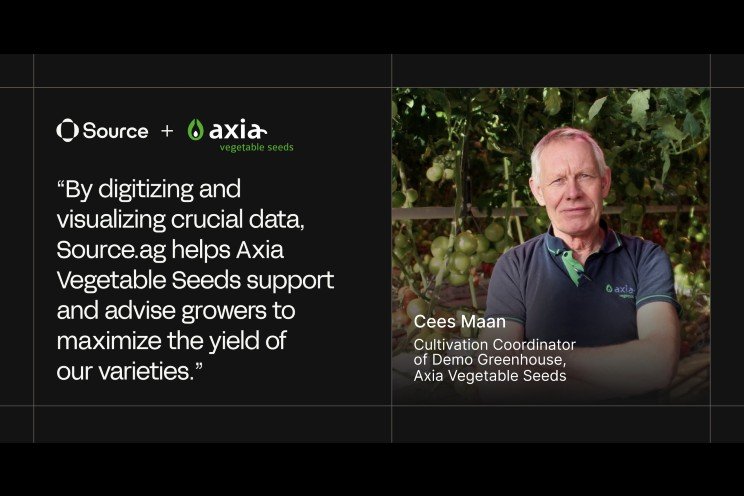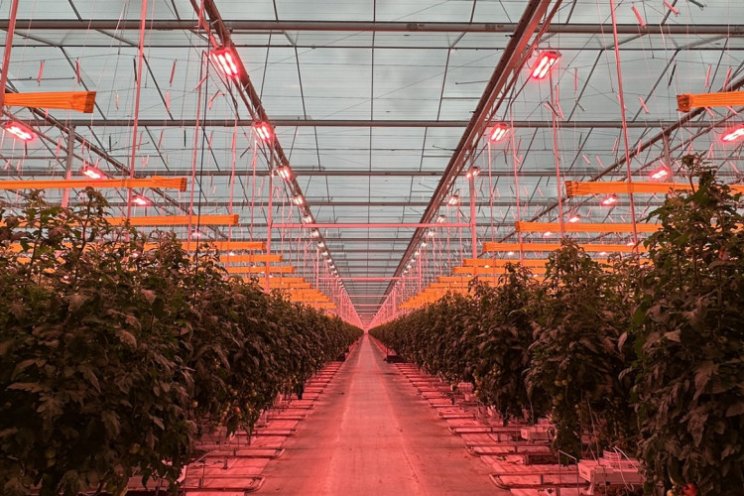Yara Fertilisers working towards sustainable agriculture
Added on 11 December 2020

Founded in 1905, Yara is a purpose driven organisation with our mission "Responsibly feed the world and protect the planet". Feeding the world embodies knowledge, economic empowerment and innovative ideas. Protecting the planet represents commitment to emission reduction and sustainable agricultural practices. At Yara we strongly believe that success can be celebrated only when it is achieved in the right way.
Yara today has a worldwide presence with sales to 160 countries and revenues of USD 12.90 billion in 2019.
"We started our journey in India in 1993 operating a representative office managed by a small team of dedicated Yara employees. Our key role was to identify the key initiatives that we could make helping the farmers to improve farm productivity. Drip irrigation was in a nascent stage at that time in India and it was rightly expected to grow on back of the increased acreages in horticulture especially in Western India. Steps were initiated to register water soluble NPK's in the Fertiliser Control Order (FCO) so that the farmers could use the drip irrigation systems to deliver water as well as fertilisers in a targeted manner thus saving effort and operational costs."
In 2004, Greenfields International became the representatives for Yara in India and a Pan India presence was created through marketing understanding with some likeminded Indian players. With the addition of three agronomists in 2009, Team India became a 5 member team. This team formed the core for Yara India for a better part of the next decade.
Working closely with the farmers, crop specific balanced Yara Crop Nutrition programs were introduced. These Crop Nutrition programs include differentiated products applied at the correct stage helping improve the marketable yield and thus positively impacting the farm profitability. We carried out extensive demonstrations as well as knowledge sharing activities at the farmer level. This created a win-win-win situation for farmers, distributors and Yara India. We believe "Knowledge grows" and has the power to create positive impact. We are always in learning curve, continuously scripting new wave and driving towards excellence. The company's DNA is Passion and walking the extra mile delivering world class products and knowledge.
Acquisition
The Indian Agri sector has a great potential (157 million hectares agriculture land) to become more productive and more efficient by improving fertiliser application practices. The benefits of balanced fertiliser practices need to be demonstrated clearly to farmers. With the right crop nutrition knowledge, farmer - centric way of working and premium products, Yara can create significant value for the Indian farmer as well as minimizing the negative environmental impact.
In 2011, Yara set up its 100% subsidiary company with Pune, Maharashtra as its headquarters. Maintaining our focus on the horticulture crops, we gradually expanded our activities to the South Indian states. By 2016, Yara had a presence in West India as well as South Indian states.
We acquired Tata Chemicals' 1.20 MN MT annual capacity urea plant located in Babrala, UP, for USD 421 million in 2018 and has created a platform to expand our reach to more Indian farmers with our unique and differentiated products, helping them to improve yields and increase their profitability. Today Yara conducts business in more than 15 states and employs around 750 workforce.
Strategy and Opportunities for Present and Future
Yara's ambition is to be the Crop Nutrition Company for the Future. We will grow responsible solutions for farmers, for industry and for society. Our strategy is farmer-centric, meaning that we aim to maximize farmer value by combining our crop nutrition, knowledge and services in complete offerings. We increasingly engage in the agriculture and food value chain to develop holistic crop solutions, expand our digital services and solutions, and promote sustainable farming practices. Better yields, higher nutrient efficiency and a lower environmental impact is our constant goal.
The global environment is rapidly evolving, and we have identified seven megatrends, of which three are biophysical and four socioeconomic, which impact business in future.
Climate Change
India's farmers are constantly threatened by adverse weather and environmental conditions that spell disaster for their produce. Extreme situations such as flooding, and droughts constantly plague India's farming community. Changing climatic patterns are set to impact agricultural production.25 percent of the world's greenhouse gas emissions come from agriculture; hence reduction of greenhouse gas emissions is very very important.
Yara shall work with the farmers to help them combat climate change and ensuing market adaptations along with two main avenues: Our agronomic knowledge can develop solutions that respond to the changing growing environments, and our low-carbon nitrate offering is a proven choice for reducing emissions from farming. Our decarbonizing efforts also include the piloting of green ammonia and mineral fertilizers, fit for a zero emissions future.
Water Stress
Water is crucial for plant growth. It has no substitute. Agriculture is a huge consumer of water, agriculture accounts more than 70 percent of the freshwater usage. India's 1.3 billion people have access to only about 4 per cent of the world's water resources, and farmers consume almost 90 per cent of the groundwater water available and lack of sufficient water of acceptable quality is a major stress factor in crop production. Climate risks and farmer economics can reduce farmers' willingness to invest in water management systems.
Yara has identified a fundamental and close relationship between crop nutrition and crop water consumption. We employ new knowledge and innovative technologies to advance water use efficiency and offer solutions for water-scarce agriculture. Our fertigation solutions and products tailored for fertigation.

Yara - The first foreign multinational company to invest in the Indian fertiliser sector
Soil Degradation
Roughly one third of the world's soil is degraded due to a variety of factors, including soil erosion, biodiversity loss and pollution. Farming without adequate replenishment of nutrients adds to the problem and results in productivity losses. Best farming practices focus on soil health, carbon capture and regenerative agriculture.
Yara is well positioned to improve soil health and to deliver the solutions required to do so. Our Analytical Services analyze soil, tissue and water samples and Our R&D on soil health management includes learnings from ongoing field trials dating back several decades. This helps to deepen our understanding of different farming environments and best practices for improving soil health.
Food industry Integration
Agriculture and the food value chain is becoming increasingly integrated. Input providers are joining forces, farms are growing in scale and professionalism, the food industry is moving upstream, and conscious consumers are putting pressure on the food and agriculture industry to achieve new levels of sustainability.
Yara's global presence, knowledge and crop solutions makes us well positioned to expand our collaboration with the food industry. Consumers are increasingly willing to pay for quality and sustainability, which we can help to achieve with better crop nutrition, application knowledge and tools. By proving our value in these partnerships, we open opportunities for the commercialization of our solutions in new market channels.
Dietary Shifts
Climate and health conscious consumers are increasingly driving diets towards healthier and sustainable choices, and more plant-based nutrition. Changing dietary patterns impact agricultural demand and crop production.
Yara is well positioned to respond to changes in dietary patterns. Nitrates - the backbone of our crop nutrition solutions - are the superior source of nitrogen for most applications. Combined with our on-the-ground presence, agronomic knowledge and tools, we are equipped to develop and provide the best solutions to local needs.
Malnutrition & Stunting - Nutrition Security
India ranked 94 among 107 nations in the Global Hunger Index 2020 and is in the serious' hunger category. According to the report, 14 per cent of India's population is under nourished - in the other words almost 18 Crore Indians are suffering from malnutrition. Alarmingly, as per the report, we have recorded a 37.4 per cent stunting rate among children under five and a wasting rate of 17.3 per cent. To emerge as a global economic force and put our demographic advantage to full use, India needs a productive and healthy workforce. This is possible only when have a high nutritive food for our citizens.
Deficiencies in the soil are also closely associated with deficiencies in humans. Yara portfolio ranges from single-nutrient fertilizers to complex compounds and micronutrients for all kind of crops. Unlike most fertilizer companies, Yara offers a complete range of crop nutrition products. We can do this because we are a market leader and a crop nutrition expert.
Digitisation
As our challenges grow - demand for higher quality food, climate change, water scarcity, pollution, reducing biodiversity, significant population growth, wealth driving higher value nutrition - we need new weapons to even maintain, let alone improve the way we grow food. Digital Farming is one key answer to these challenges. it is a critical toolbox towards the sustainably feed the world and protect the planet. Digital technology enables us to address a key problem in smallholder markets, which is how to bring know-how to remote farms, and reach millions of farmers.
With digital hubs in Europe, Latin America, Asia, North America and now an Indian Technology Centre in Bangalore, Yara is shaping the future of farming by building new digital solutions solving critical problems within agriculture.
In just one year as an incubation team, we have touched base 3M+ farmers in India, through digital channels and started making some impact on farmer profitability. We provide hyper local weather forecasts as well as farm advisory services to the Indian farmers to help him make informed decisions
With one of the largest arable land resources in the world. With 20 agri-climatic regions, all 15 major climates in the world exist in India. The country also possesses 46 of the 60 soil types in the world and High proportion of agricultural land (157 million hectares). This presents a unique opportunity - we can produce almost everything in the country and supply to the global markets round the year. Yara India committed for this.
Source and Photo Courtesy of Ag News
Source: Ag News
More news















